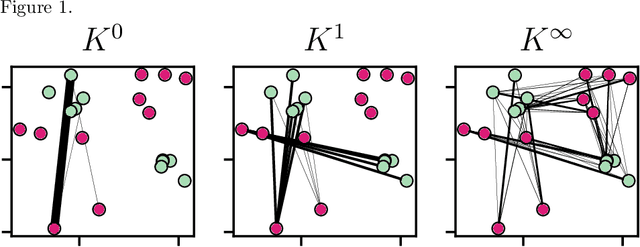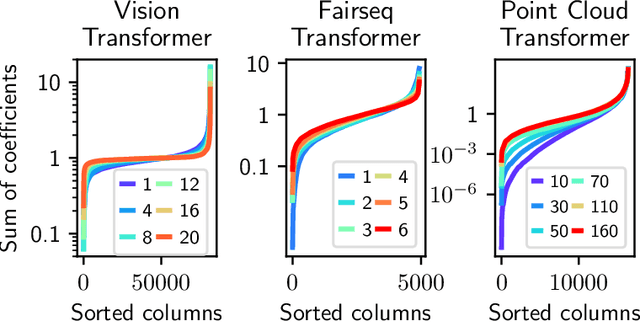Sinkformers: Transformers with Doubly Stochastic Attention
Paper and Code
Oct 22, 2021



Attention based models such as Transformers involve pairwise interactions between data points, modeled with a learnable attention matrix. Importantly, this attention matrix is normalized with the SoftMax operator, which makes it row-wise stochastic. In this paper, we propose instead to use Sinkhorn's algorithm to make attention matrices doubly stochastic. We call the resulting model a Sinkformer. We show that the row-wise stochastic attention matrices in classical Transformers get close to doubly stochastic matrices as the number of epochs increases, justifying the use of Sinkhorn normalization as an informative prior. On the theoretical side, we show that, unlike the SoftMax operation, this normalization makes it possible to understand the iterations of self-attention modules as a discretized gradient-flow for the Wasserstein metric. We also show in the infinite number of samples limit that, when rescaling both attention matrices and depth, Sinkformers operate a heat diffusion. On the experimental side, we show that Sinkformers enhance model accuracy in vision and natural language processing tasks. In particular, on 3D shapes classification, Sinkformers lead to a significant improvement.
 Add to Chrome
Add to Chrome Add to Firefox
Add to Firefox Add to Edge
Add to Edge